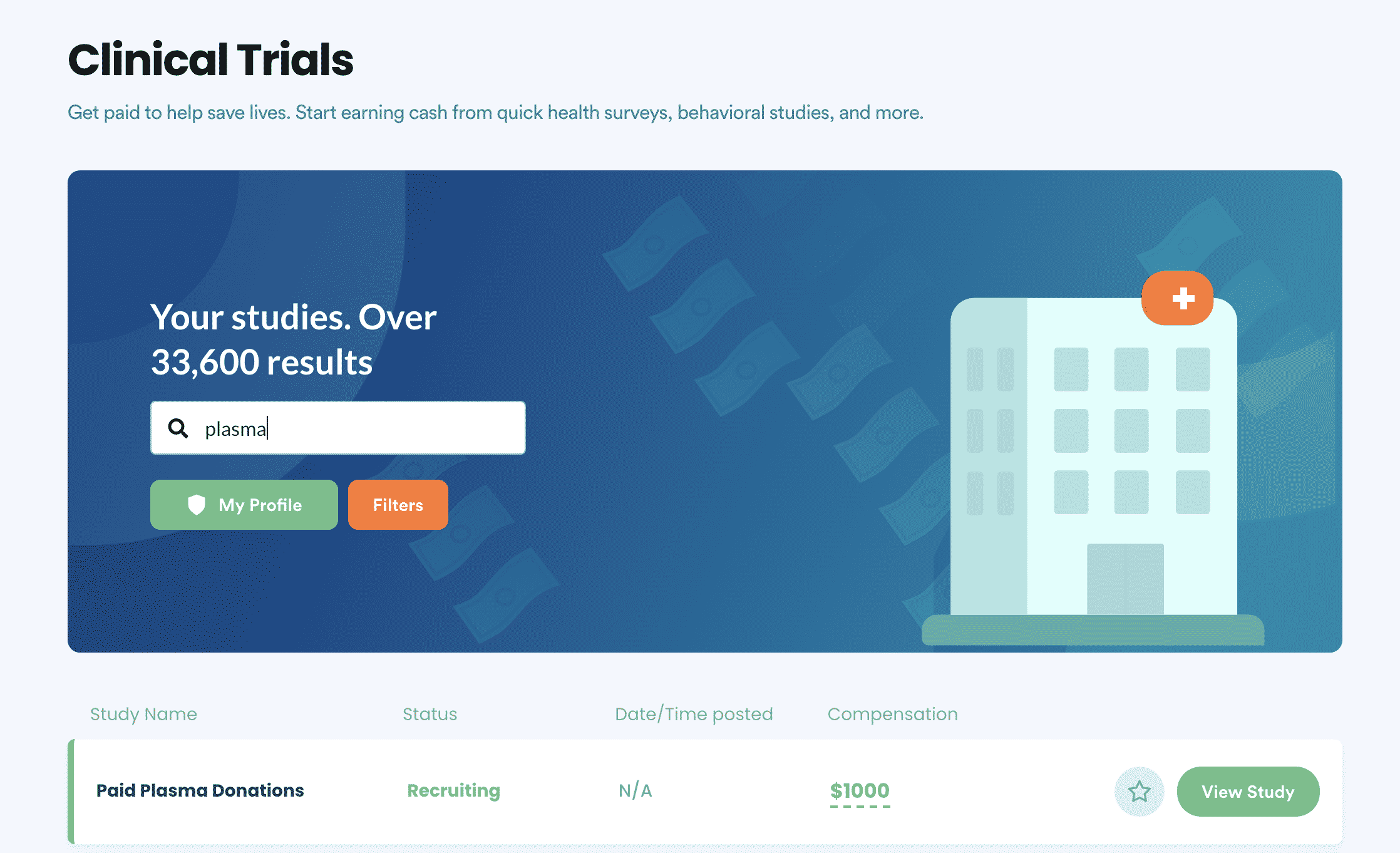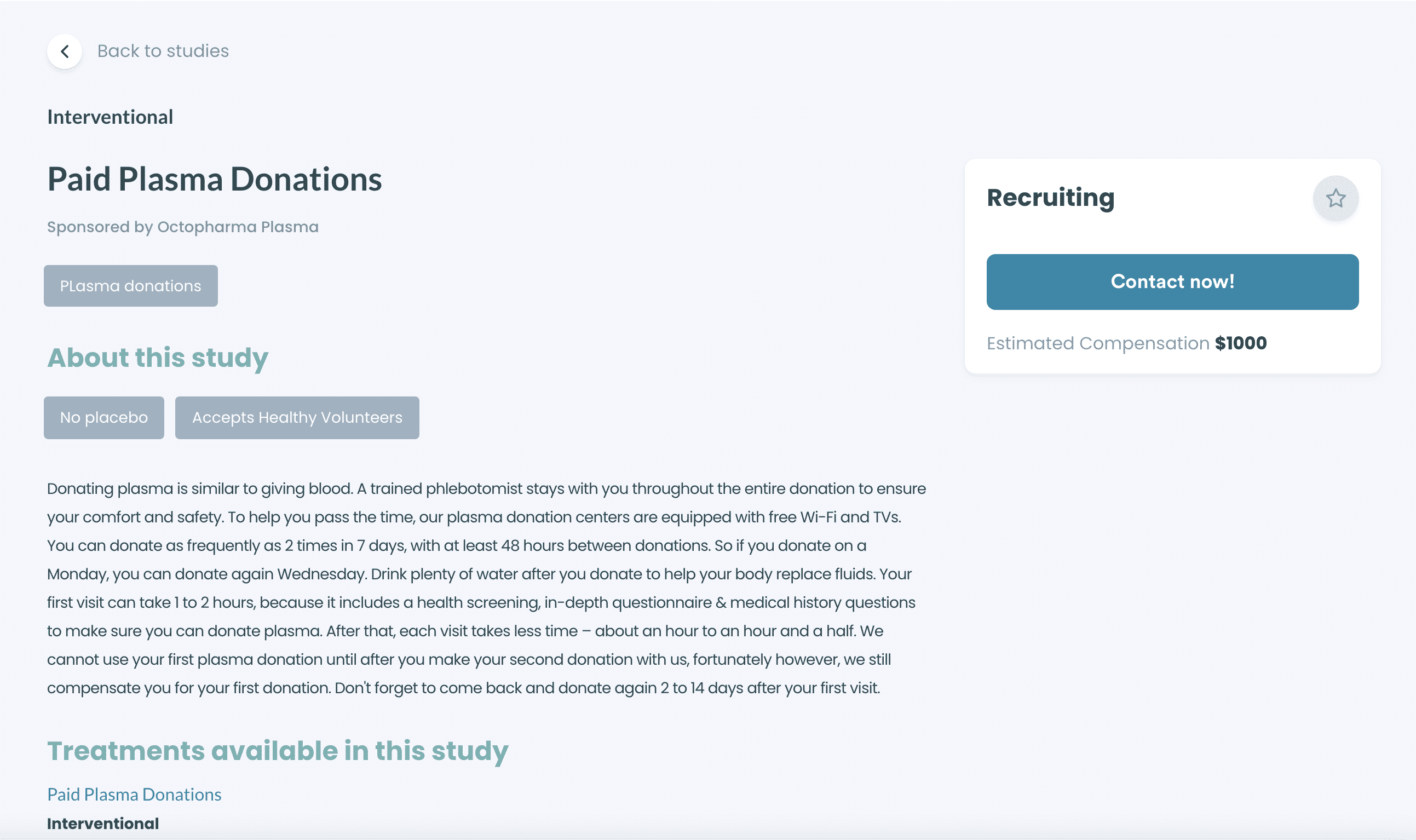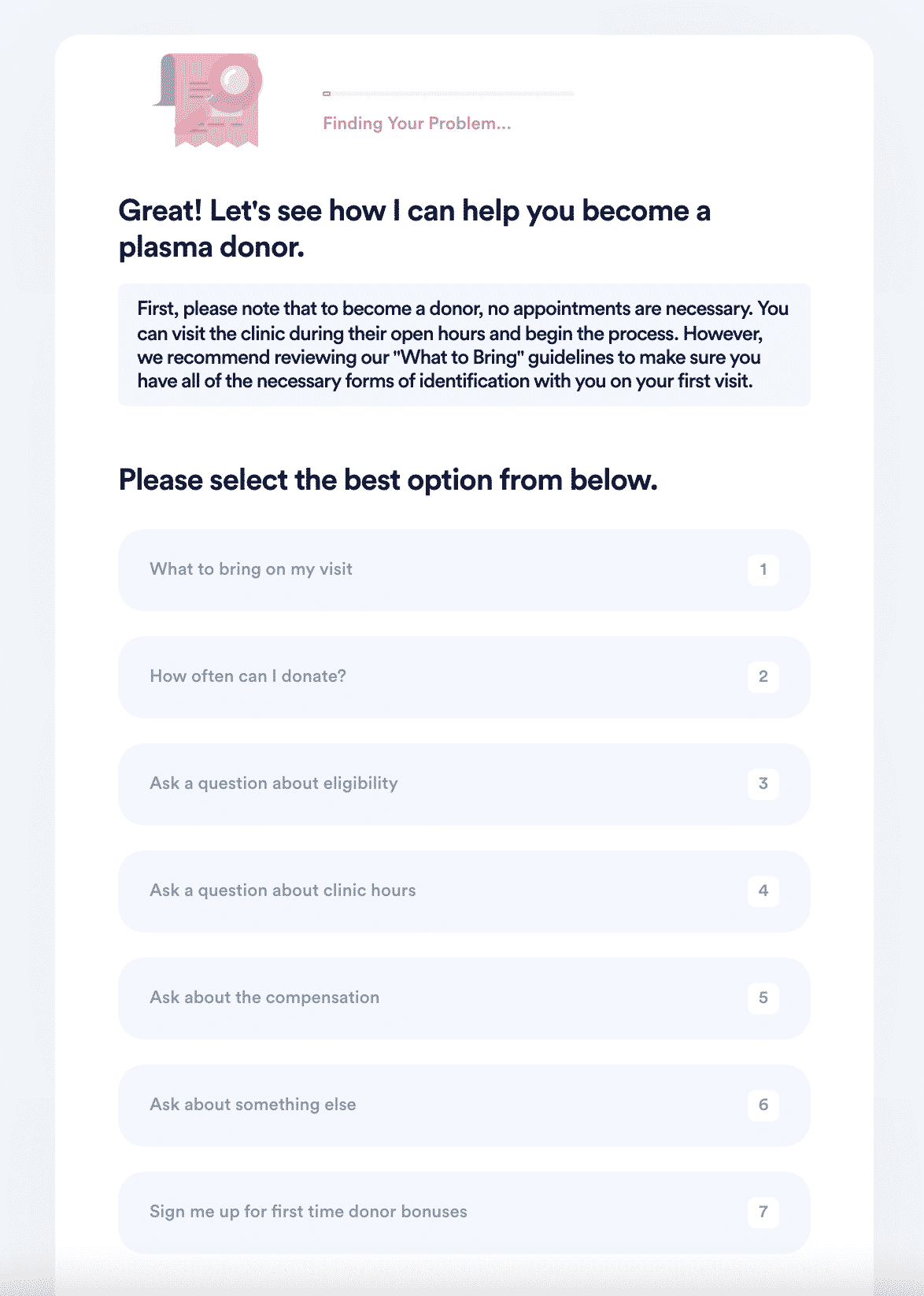How to Donate Plasma and Get Paid
Volunteering to donate blood or plasma always does a lot of good, especially for the person your donation goes to. Your donation might just be what saves someone's life somewhere. Blood plasma is critical for many modern medical therapies today. However, knowing and donating it are two different things.
Plasma donation is a sensitive subject and has been used to treat immune system conditions, respiratory disorders, bleeding, and blood transfusions. Fortunately, donating plasma is often a safe process that takes just a few hours.
Today, we will discuss what plasma is, why it is important, and who is eligible for donating plasma. Read on to discover how DoNotPay can help with your plasma donation process.
What Is Plasma?
Plasma is a yellow, straw-colored liquid component of blood that remains after you've removed all blood cells, platelets, and other blood components. It is the largest component of the human blood, comprising about 55% of the blood, and contains water, enzymes, salts, proteins, and antibodies.
Only a small portion of people in the United States are eligible for plasma donation. And from this number, even fewer people donate. What's more important is to encourage eligible donors to donate and contribute life-saving plasma to those in need.
Plasma Donor Eligibility Requirements
Like most donations, you must be eligible and pass all the plasma donation requirements before donating. Each blood bank or laboratory may have different requirements regarding who can donate plasma and who cannot.
Generally, the donor must:
- Be 18+ years old
- Weigh more than 110 lbs.
- Pass a basic physical exam
- Provide proof of identity and address
- Not have donated plasma in the past month
- Pass a basic health screen, vital test, blood test
NOTE: The plasma donation eligibility criteria often vary depending on the laboratory or blood bank you're donating to.
The 28-day rule also allows the donor's body to recover and repair itself after previous donations. This provides eligible donors with about 13 opportunities to donate their plasma to those in need per year.
How to Donate Plasma Safely
The best part about donating plasma is that it is generally a safe process that doesn't expose the donor to any harm. However, getting as much information about will go a long way toward the entire process.
Here's what you should know:
1. Visit an Accredited Center
An accredited plasma donation center will put you through a rigorous screening process to ensure that you are eligible for plasma donation. You will take an initial blood test, undergo a physical exam, and fill out a questionnaire. It is a red flag if the donation center you're applying to doesn't go through this process, it is a red flag.
2. Monitor Your Donation Frequency
Blood donors and other donation centers recommend that you donate plasma every 28 days or up to 13 times a year. And while the FDA allows donors to donate plasma more frequently, it is always best practice to stick to the recommended donation times for safety.
3. Hydrate Before Your Visit
We also recommend that you drink an extra 16 ounces of water or clear, non-alcoholic fluids before your donation. Hydrating before donating plasma can help prevent fainting, dizziness, lightheadedness, and fatigue. These are some of the common side effects of plasma donation.
How to Donate Plasma With the Help of DoNotPay
If you're unsure whether you should donate plasma or not, here are some reasons.
| Earn money | You can earn a hefty amount of money by donating plasma. If you're opting to donate plasma for cash, you can earn around $1,000 each month. |
| Make an impact | Plasma donation is, undoubtedly, a great way to make an impact. Thus, helping you to improve the quality of someone's life. |
| Boost your mood | Recent studies suggest that donating something directly boosts your mood. By donating plasma for money, you can reduce your stress level. |
| Eat better | Being a plasma donor helps you to improve your diet. You will be educated to cut down on fatty foods and limit other unhealthy food. |
| Be healthier | Donating plasma will help you lower the cholesterol levels in your body. |
However, not everyone can donate plasma. For instance, you may be disqualified if you are diabetic or have just received the COVID-19 vaccine and experiencing some side effects. So, how will you know if you are an eligible plasma donor?
DoNotPay is the perfect service to help you determine your eligibility for donating plasma and how much you can make from each donation in your state. You can use the DoNotPay app to find the best plasma donation centers in your area and kickstart the process quickly, easily, and successfully.
Follow these three easy steps if you want to use DoNotPay to find out if you can become a plasma donor:
- Search "plasma donations" on DoNotPay and find the nearest donation clinic through our clinical trials product.

- Select the "Contact Now" button to learn more about eligibility criteria, contact the clinic with questions, or sign up for first-time donor bonuses.

- Verify your information and submit your inquiry! DoNotPay will contact the clinic on your behalf and make sure your questions get answered.

What Else Can DoNotPay Do?
The DoNotPay app not only guarantees you an easy, quick, and successful way to donate plasma in your state, but you can also use the service to solve other daily life issues, such as:
- Creating an advance healthcare directive
- Filing insurance claims
- Searching for Clinical trials
- Requesting for sick leave
There's no better way to donate plasma and save a life while making some money in the process than with the help of DoNotPay. The DoNotPay app provides you with the resources you need to determine if you're an eligible plasma donor!
 By
By